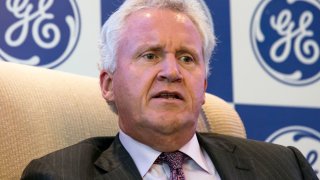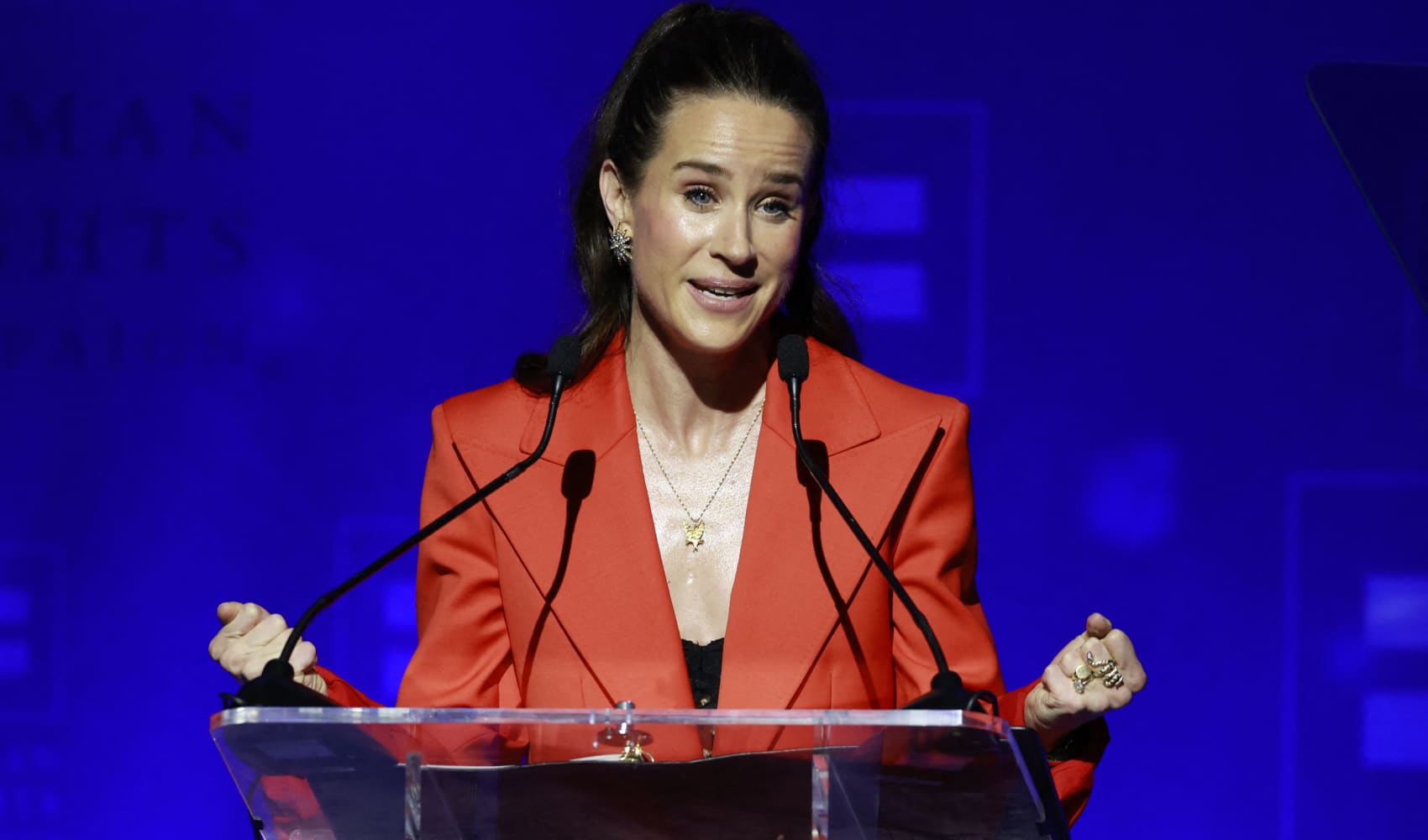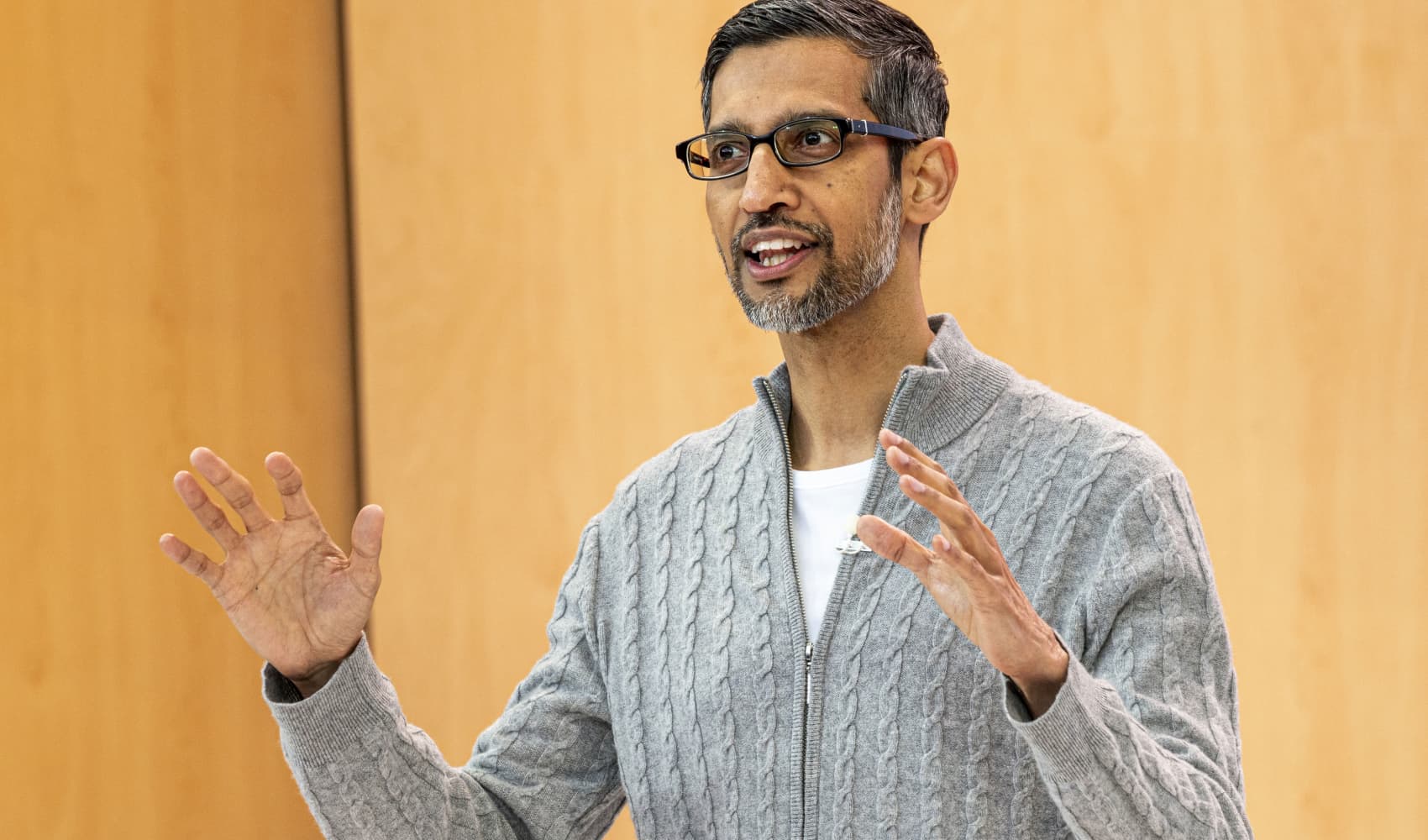
- Jeff Immelt told CNBC on Monday the perception of his time as CEO of General Electric has been unfair and incomplete.
- "I am wholly unhappy about the narrative that has been created around the GE team,” Immelt said in an interview about his upcoming book.
- Immelt took much of the blame for GE's declining fortunes under his watch, but he also offered mitigating factors and cast some blame elsewhere.
Jeff Immelt said Monday the perception of his time as CEO of General Electric has been unfair and incomplete.
In a wide-ranging interview with CNBC's David Faber, Immelt said that's why he wrote a book about it, "Hot Seat," which is slated to be published Tuesday.
Get Connecticut local news, weather forecasts and entertainment stories to your inbox. Sign up for NBC Connecticut newsletters.
In the book and the interview, Immelt took much of the blame for the declining fortunes under his watch of one of America's most iconic companies. But along the way, he offered mitigating factors and cast some blame elsewhere.
"I am wholly unhappy about the narrative that has been created around the GE team," Immelt told Faber, looking back on his turbulent 16 years as chief executive of GE, which ended in 2017. "I don't think it's been complete. I don't think it's been fair. And I think it's hurt a lot of people."
'Volatility and market risk' matter to CEO success
Money Report
In 2001, Immelt succeeded then-CEO Jack Welch, who built the company from 1981 over two decades into a corporate behemoth. For a time, in 2000 under Welch, it was the world's most valuable company with a market capitalization of more than $600 billion and a stock price over $55 per share.
The stock was already turning over when Immelt took over as the dot-com bubble of the 1990s burst and took the broader stock market lower as well. Immelt navigated GE through the aftermath of the Sept. 11, 2001, terrorist attacks and the 2008 financial crisis.
On his way out the door in 2017, with the stock price languishing in the mid-$20s, Immelt found himself defending GE's practice of having an empty business jet follow his corporate plane on several trips around the world. Immelt also came under fire by critics for what they called poor leadership decisions as CEO that left GE cash-strapped.
Asked by Faber whether he felt unlucky, given the market conditions during his time as CEO, Immelt said, "I'm harder on myself than anyone else" in the book. But he added, "Do I think volatility and market risk things like that matter in terms of somebody's tenure? Sure it does."
GE saw its stock continue to drop post-Immelt, hitting an all-time low below $6 per share in May 2020 as the coronavirus pandemic raged despite the efforts of two more CEOs: John Flannery, who look over for Immelt in 2017, and then was ousted after just 14 months, and Larry Culp, already a GE board member at the time and previously CEO of Danaher from 2000 to 2014.
Culp, who remains head of GE, has been executing a turnaround, which has seen some benefits of late. The stock hit a 52-week high Monday, gaining 5% to more than $12.50 per share. Last month, GE posted better-than-expected industrial free cash flow for the fourth quarter and a rosy outlook for 2021.
However, in December, the Securities and Exchange Commission fined General Electric $200 million for past behavior, settling charges the company misled investors in 2016 and 2017 about the source of profit in its GE Power business, and failed to fully inform investors about risks associated with GE Capital, its financial services arm, between 2015 and 2017.
'We had a window after 9/11' to remake GE but didn't
Immelt addressed GE Capital in the book and in Monday's CNBC interview, telling Faber that at the time General Electric had layers upon layers of strong checks and balances.
"As we kind of crossed over to 2000 and beyond, we had really under-invested in our industrials businesses. And we needed the cash from GE Capital to help us make those investments in the early 2000s," Immelt said, who inherited GE Capital which was generating about 40% of earnings when he took over as CEO in 2001. GE Capital rose to as much as 50% of earnings by 2007.
"We basically tried to remix the portfolio while at the same time keeping earnings growing. And we made the decision to grow GE Capital. By the time the global financial crisis hit that didn't look very smart," Immelt admitted to CNBC.
Reflecting on those times, he said, "We had a window after 9/11, where I think it was the end of the power bubble, we had a chance to reset the company, really lower earnings and really remix more aggressively in the early 2000s. We chose not to do that. I decided not to do that. And I look back and say, 'Things might have been different had we picked a different path.'"
Another misstep came in 2004, when GE spun off its Genworth insurance business but kept a large batch of money-losing policies, forcing GE in 2018 to take a $6.2 billion charge and set aside $15 billion in reserves.
Immelt said he saw "zero" fraud in the insurance bsuiness when he was there. "There's a difference between being wrong and being wrong on purpose." He added that GE "spent lots of time to make sure we got things right."
'We didn't have a team aligned with execution' on Alstom deal
Addressing GE's $10.6 billion acquisition of French multinational Alstom's power assets in 2015, Immelt told Faber, "If I had to do it all over again, I won't do the Alstom deal."
Faber asked Immelt about what he wrote in the book about "'maybe the worst mistake'" he ever made was "'listening to the board and not firing'" Steve Bolze, who ran GE Power at the time.
"I'm harder on myself than anyone else," Immelt said. "But it was a complicated deal, with difficult markets, where we didn't have a team aligned with execution." He added, "I, again, own that, as does the board in terms of where we positioned at that time."
Immelt said the board through out his time was strong, especially during the financial crisis. But he said he blames himself for giving them "too much to work on" and failing to manage them as closely as he should have.
In lessons learned from his career, Immelt said there's an "argument for simpler is better," adding he tried unsuccessfully to simplify GE. "All leadership is crisis leadership. And I think to a certain extent, this team, me, went through a lot together that others can learn from," Immelt opined. "I wanted to share that" in the book as well.






